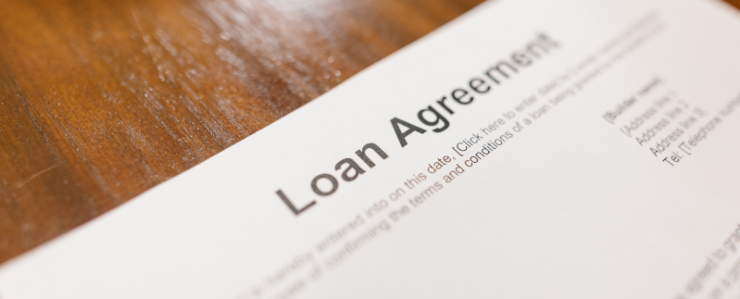
Selling your home may be both fun and distressing. You must plan to move everything that you own, make minor fixes, and more as you prepare your home for sale. You must also prepare for a real estate transaction that may require significant documentation.
Many people discover that gathering all the paperwork ahead of time leads to a quicker and more effective house sale. We will highlight all the documentation you will need to sell your property, clarifying the process and bringing you one step closer to selling your home.
However, there is one caveat: some documents are legally required, while others aid in the process, and this varies by state.
This article classifies the documents for sellers into four stages of the buying process:
- before listing
- while on the marketplace
- after getting an offer
- closing discussions
What Documents Do I Need While Selling My House?
Most real estate transactions need several reports, agreements, paperwork, and other property document obligations to be fulfilled. Compiling and signing this paperwork may be a time-consuming and long process for both sellers and buyers.
However, knowing your property document requirements beforehand might help secure a swift and stress-free sale.
Please remember that this list is not definitive because state and national regulations differ across the country. Similarly, paperwork may differ depending on whether the home was a personal dwelling, a rental home, or whether long-term improvements are underway.
However, these documents are required for most real estate transactions. We’ve organized them here by the point of sale process where you’ll need to receive them.
Before you gather the precise paperwork required to sell a house in your area, always study the legal provisions for your district or seek the assistance of local real estate investors.
What Documents Do I Need Before Listing My Home?

The list of documentation for preparing to sell is the longest. If you’re well-organized, you have most of this in one location. Otherwise, allow yourself plenty of time to gather everything and order anything you don’t have or need help finding. Here is the list of documentation:
Original Purchase Agreement
As a seller, you must provide prospective buyers with a copy of the original sale contract between the seller and the prior property owners. This will include the property’s previous purchase price, disclosures provided at the time of sale, such as unpaid property taxes, and any deed transfer contingencies.
Maintenance Records
While it is not legally required, most purchasers will ask for proof of restorations and fixes. In such a scenario, you must keep a record of all home repairs and upkeep, including before and after pictures, material receipts, and contractual arrangements with contact details for the contractor.
Statement of Mortgage
You’ll have to verify how much you still owe if you still need to pay off your existing mortgage fully. Request a mortgage loan documentation or mortgage statement from your mortgage lender or provider that displays your payoff amount, which is the total amount you’ll have to repay to satisfy the conditions of your mortgage.
Since your balance amount does not contain interest, your payoff amount will differ from your current balance. With this information, you can estimate your property sale profit.
Homeowners Insurance Records
Evidence of your homeowner’s insurance records will tell a buyer how much they can expect to spend for their own homeowner’s insurance. Buyers appreciate such clarity, and it’s a lovely gesture. However, disclosure is not required.
Only some states require homeowners insurance records. We mention it here since it is still advisable and can aid in the sale.
Homeowners Association (HOA) Paperwork
It is ultimately the investor’s responsibility to hunt for and discover HOA documents, but it is a nice gesture for you as a seller to disclose them upfront. If applicable, supplying HOA documentation can help with the sale process. These key documents may contain the following:
- Incorporation Articles
- Homeowners association rules
- Bylaws
- Statement of homeowner’s dues
- Financial documents
- Copies of the proceedings of the Association’s meetings
- The Covenants, Conditions, and Limitations Declaration
Report on Comparative Market Analysis (CMA)
If you’re selling through a real estate agent, they’ll compile a Comparative Market Analysis report to determine your property’s suggested listing price and selling value. These analyses examine local property market trends utilizing ongoing sales data to determine a reasonable projected sales price. If you’re dealing without an agent, you won’t have this to offer, which is okay.
Contract For Listing And Marketing
Please note this is only required if you are selling your property through real estate agents. This listing agreement establishes a contract between the seller and the real estate agent, allowing the agency the sole right to sell and advertise the property. This is more for the protection of you and your agent than the buyer.
What Documents Do I Need While My House Is On The Market?
When your house is on the market, you must compile a preliminary home title report. You must also complete several obligatory disclosures and a pre-listing inspection report. Furthermore, you must have documentation for the bid and counteroffer after a possible buyer proposes an offer. Let us look at all the documents necessary while your house is on the market in detail.
Homeownership Interim Report
You probably are the first owner of your house, and regulations need to be more responsive and straightforward. As a result, sellers must seek a preliminary home title report to determine whether their property has any pending legal or financial liabilities. Taxes owed, property insurance requirements, local covenant restrictions, or property debts are examples of these. They are available from any major title company.
Purchase Offer Form
This document establishes the foundation for the ultimate purchase contract between a seller and a buyer. Purchase offer forms are not the final documents and may be revised or amended, but it is useful to have them beforehand to speed up the process. It’s a smart idea to have a basic structure in place before accepting a proposal.
The form includes a buyer’s original offer, a short outline of the property, and listing details included at the time of sale. Much of the paperwork can be filled out using assumptions, and a professional can assist you in writing it up.
What Documents Do I Need After Accepting An Offer?
Once you and the buyer have settled on the purchase of your house, you will need to prepare the necessary documentation before closing. Listed below are some of the documents you may require during this time:
Statement Of Mandatory Disclosures
When a prospective buyer agrees on a purchase price, you, as a seller, are obligated to disclose any known defects or concerns that may compromise the property. Previous instances of water leaks, placement on a wetland, use of lead-based paint, prior toxic substance use, or community association regulations are all mandatory disclosures you need to make beforehand.
Form For Removal Of Contingencies
Contingency removal form contingencies are provisions in purchase proposal forms or final sale contracts that allow the purchase contract to be amended. They could include the seller compensating for certain repairs before the sale, a buyer postponing their move-in date until the seller transfers into another home, or a variety of other things. On the contingency removal form, mark any conditions accepted to and by both buyer and seller and are successfully met.
What Other Documents Do I Need?

A house inspection and appraisal report are essential for a contract to conclude. Additionally, you will also require the following:
- Acquisition agreement
- Most recent tax statement
- Closing statement
- A sale deed copy
Let us take a look at these in detail.
Home Appraisal Report
Buyers who use a loan to purchase a home will be subjected to a property valuation. Lenders usually always request a third-party appraisal of the property to determine its actual market worth. If the appraised price exceeds the offered price, the lender may refuse to approve the buyer’s loan. The buyer manages this documentation. However, it could sometimes lead to negotiations for the seller.
Home Inspection Report
This document will be managed by buyers who might hire a professional home inspector to assess a seller’s property for any possible damage. If the inspection reveals any previously unknown or undisclosed flaws with the property, they may drop their offer or ask the seller to rectify the concerns out of their pocket. Sellers can arrange for their inspections, but most purchasers will feel more at ease having their inspection conducted.
Final Purchase Contract
The final sale agreements are the most comprehensive document in the series, establishing the final terms of the sale between buyer and seller. It contains the sales price, the closing date, and any final considerations, and it serves as a legally binding agreement that will seal the deal once and for all.
Sale Deed
The final stage in the property transaction process, executing the final sale agreement- the sale deed- symbolizes the transfer of ownership rights from the seller to the buyer. The buyer and seller’s representatives create the deed to the final terms of the sale agreement, which the seller and the buyer sign to complete the transaction.
Bottom Line
We’ve included an outline of the documents you’ll need during the home-selling process. Some are mandatory. The paperwork mentioned above is likely only a percentage of what you will need to sell a house in your area lawfully. Rules differ between municipalities and states, so you should work with a professional that is not only familiar with the local laws but can also assist you with a proposed marketing plan and speed up the process.







